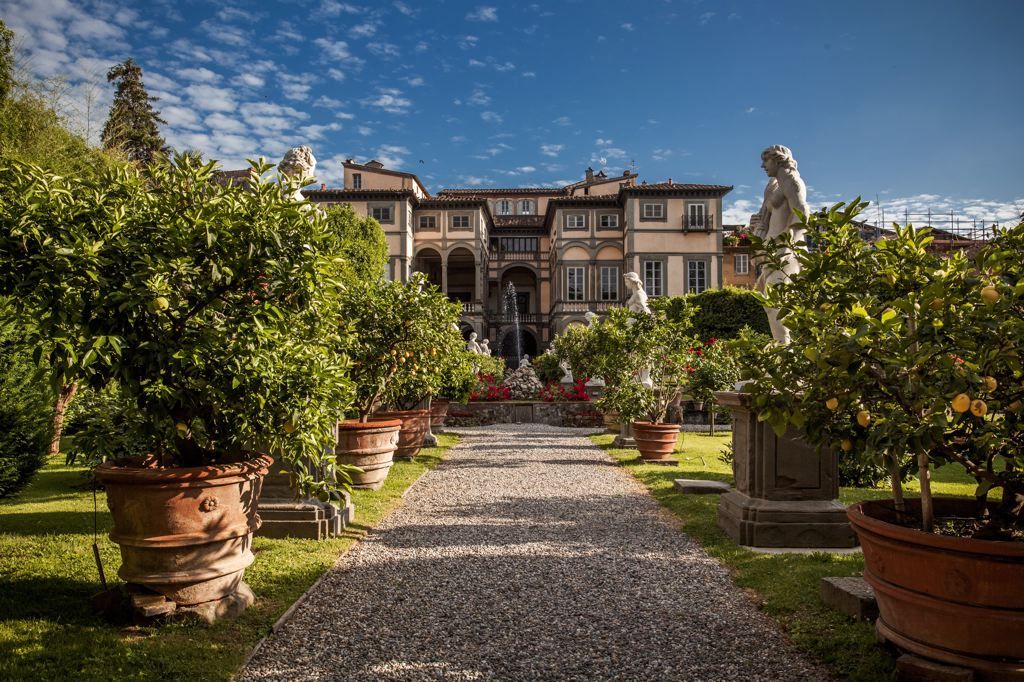An elegant, privately-owned Baroque Palazzo which dates back to 1667 when it was built for the Moroconi family. The house and its gardens are not far from the city walls on one side, and the medieval streets of the city on the other.
Although the house is magnificent, the gardens are outstanding. They were created by Messina architect Filippo Juvarra (1678-1736) and together with the majestic monumental staircase (completed around 1686, by architect Domenico Martinelli (1650-1718)) they were undertaken when the Moroconi family fell upon hard times and sold out to the the Contronis family in 1680.
Since the Controni’s bought it in 1680, the property has changed hands several times until the Pfanner family who own it today, bought it in 1856.
You can start your visit in the large reception hall which is decorated with frescoes by Scorsini and De Santi (early to mid 18th-century). Wander through the rooms leading off the hall to see furniture and furnishings from different centuries. They include a canopy bed that Prince Frederick of Denmark and Norway slept in during a brief stay in 1692 and a dining room with table settings from the 19th-century.
There is a collection of surgical equipment and medical manuscripts which belonged to Pietro Pfanner, a surgeon and Lucca’s mayor between 1920 and 1922.
Yet it is the formal Italian garden which is the principal attraction. They were recreated in 1820 by Marie Louise, Duchess of Parma, the garden is small but has a selection of very interesting, well-labelled, plants and trees, from around the world and it is partially enclosed by the majestic city wall.
There are two monumental glasshouses, a sensory garden, a medicinal plants collection and a collection of edible wild plants used in Lucca for traditional cooking.
There is also a large octagonal pool with lilies, turtles and fish, where the paths cross, surrounded by 18th-century marble statues, depicting the divinities of Greek Olympus.
There aren’t many “green spaces” in Lucca so this makes a welcome break from walking the wall and visiting the churches and museums. Two central paths lined by lemon trees lead you through box and laurel hedges, yews, magnolias, peony and hydrangea bushes, ancient camellia plants, begonias, roses and geraniums.
Not surprisingly three films have been shot here: Luigi Magni's Bersaglieri arrive (1980), Mario Monicelli's Il marchese del Grillo (1981) and Jane Campion's Portrait of a Lady (1996) and this has undoubtedly attracted attention to the gardens

- Monday:
-
10:00 - 18:00
- Tuesday:
-
10:00 - 18:00
- Wednesday:
-
10:00 - 18:00
- Thursday:
-
10:00 - 18:00
- Friday:
-
10:00 - 18:00
- Saturday:
-
10:00 - 18:00
- Sunday:
-
10:00 - 18:00








